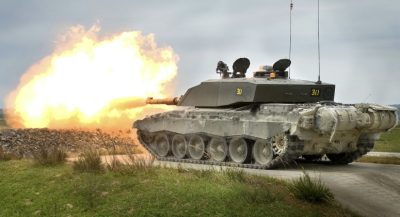Why Use of Cluster Bombs for ‘Liberating’ Territory Implies Serious Self-Harm Too

All Global Research articles can be read in 51 languages by activating the Translate Website button below the author’s name.
To receive Global Research’s Daily Newsletter (selected articles), click here.
Click the share button above to email/forward this article to your friends and colleagues. Follow us on Instagram and Twitter and subscribe to our Telegram Channel. Feel free to repost and share widely Global Research articles.
***
In the middle of an intensifying controversy over whether western countries should supply cluster bombs to Ukraine for use in the ongoing conflict, another issue that deserves serious attention is that if cluster bombs are to be used for ‘liberating’ its own territory by Ukraine, which is the stated aim for obtaining the supply of these deadly weapons by Ukraine from western countries, then the use of these weapons necessarily involves self-harm in the context of longer-term impacts of cluster bombs.
This would be true for any weapons with serious longer-term adverse impacts, including depleted uranium weapons, which too are being supplied by western countries to Ukraine.
When a country in the course of a war loses some territory and then announces its determination to liberate this territory, this implies that the people of this territory are considered to be the equal citizens of this country whose welfare has to be protected.
However cluster weapons, which involve bombs exploding mid-air to disperse hundreds of small but very painful and destructive bomblets, are inherently more likely to hit civilian and unintended targets as well. What is even more important is that many of them remain unexploded for a very long time and hence can cause a lot of civilian harms for several years after the conflict is over, particularly to civilians. In particular these have proved very devastating for innocent and unsuspecting children, despite many attempts having been made to warn them regarding the need to stay away from suspicious objects. These high risks have been widely documented for several countries like Laos where cluster bombs were used widely and where these have continued to kill and disable people several years later. It is in fact due to this that a very large number of countries, about 100 including several NATO members, have signed the convention against cluster bombs.
Now, if Ukraine uses these cluster bombs to ‘liberate’ its lost territories, this implies that whether the liberation effort is successful or not, the cluster weapons will continue to inflict serious harm for many, many years on people it considers to be its own, on land it considers to be its own. Hence there is a serious contradiction and a serious question of self-harm involved in any plans to use cluster weapons as a means of liberating own territories (as distinct from attacking enemy lands).
As deadly weapons like cluster bombs are given by western countries to Ukraine mainly for liberating territory and often clearly specifications are mentioned that these are not to be used for attacking Russia mainland, there is clearly a serious element of implied self-harm in the use of cluster bombs by Ukraine. Both the Ukraine authorities and their western suppliers should seriously consider the self-harm part of the issue.
This is also applicable in the supply of depleted uranium ammunitions and in fact any weapons and ammunition that have a serious long term adverse impact (on people, health and environment). In the case of depleted uranium weapons there is a lot of documented evidence regarding the longer-term serious impacts from places like Iraq and elsewhere where these were widely used. There are some very painful reports. At the same time some have stated that the harms may not be so serious. The balance of evidence tells us that the impacts can be very harmful and painful and where such high risks exists, even if not established at hundred per cent level, the manufacture, use and export of such terrible weapons should be avoided. There are possibilities of soldiers using such weapons to attack others also suffering long-term adverse health impacts.
The case of not using any weapons of longer term adverse impacts would be very strong in the context of liberating territory and the implied longer-term harm to own people.
This aspect of self-harm of course is only one part of the wider debate on the supply of cluster bombs and other deadly weapons to Ukraine by western countries. There are several other reasons to question supply of these and in fact all weapons and instead concentrate all attention and efforts on bringing peace and on bringing peace only—starting with unconditional ceasefire ( so as to stop further fighting immediately) followed by peace negotiations which can be quite prolonged as long as the fighting stops.
*
Note to readers: Please click the share button above. Follow us on Instagram and Twitter and subscribe to our Telegram Channel. Feel free to repost and share widely Global Research articles.
Bharat Dogra is Honorary Convener, Campaign to Save Earth Now. His recent books include Planet in Peril, Protecting Earth for Children and A Day in 2071. He is a regular contributor to Global Research.
Featured image is from Military Watch Magazine

